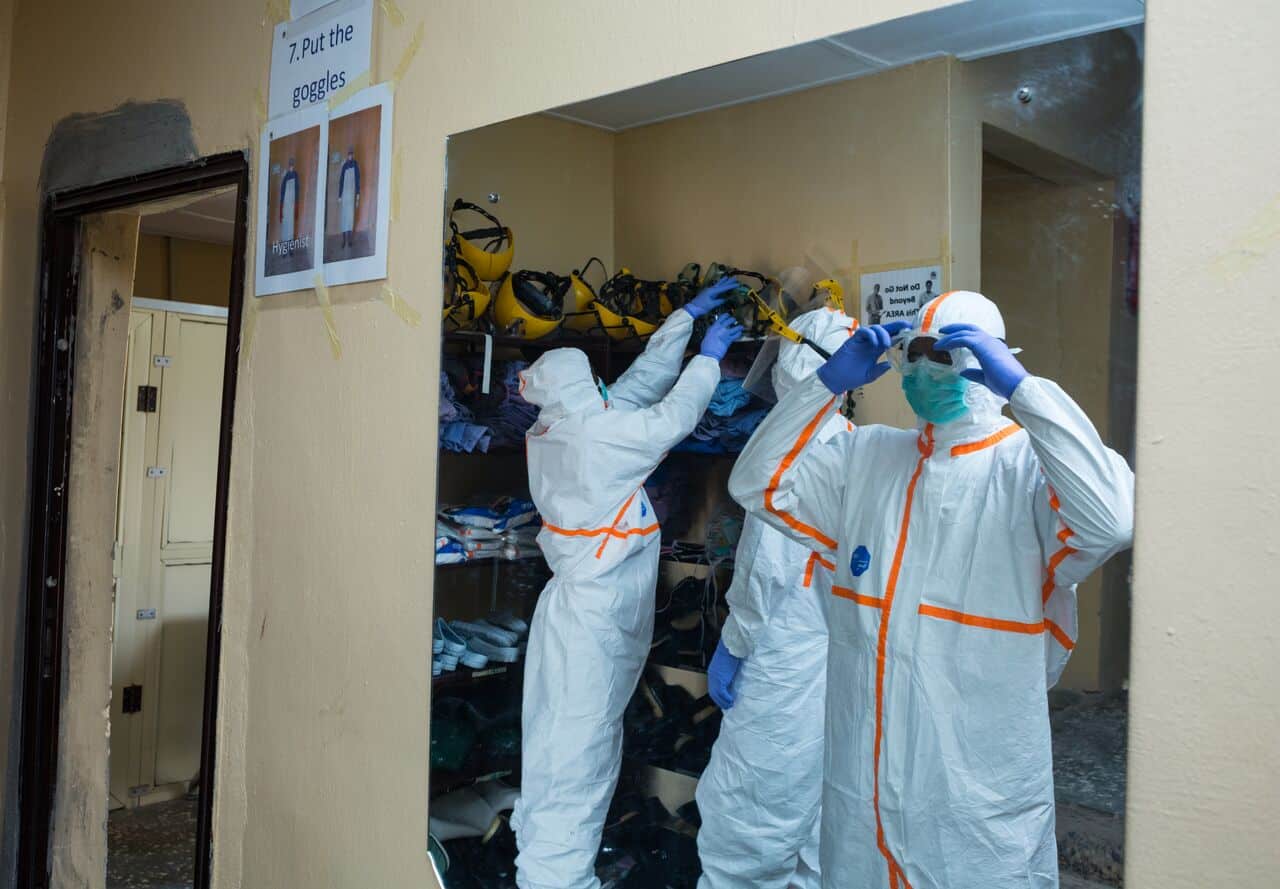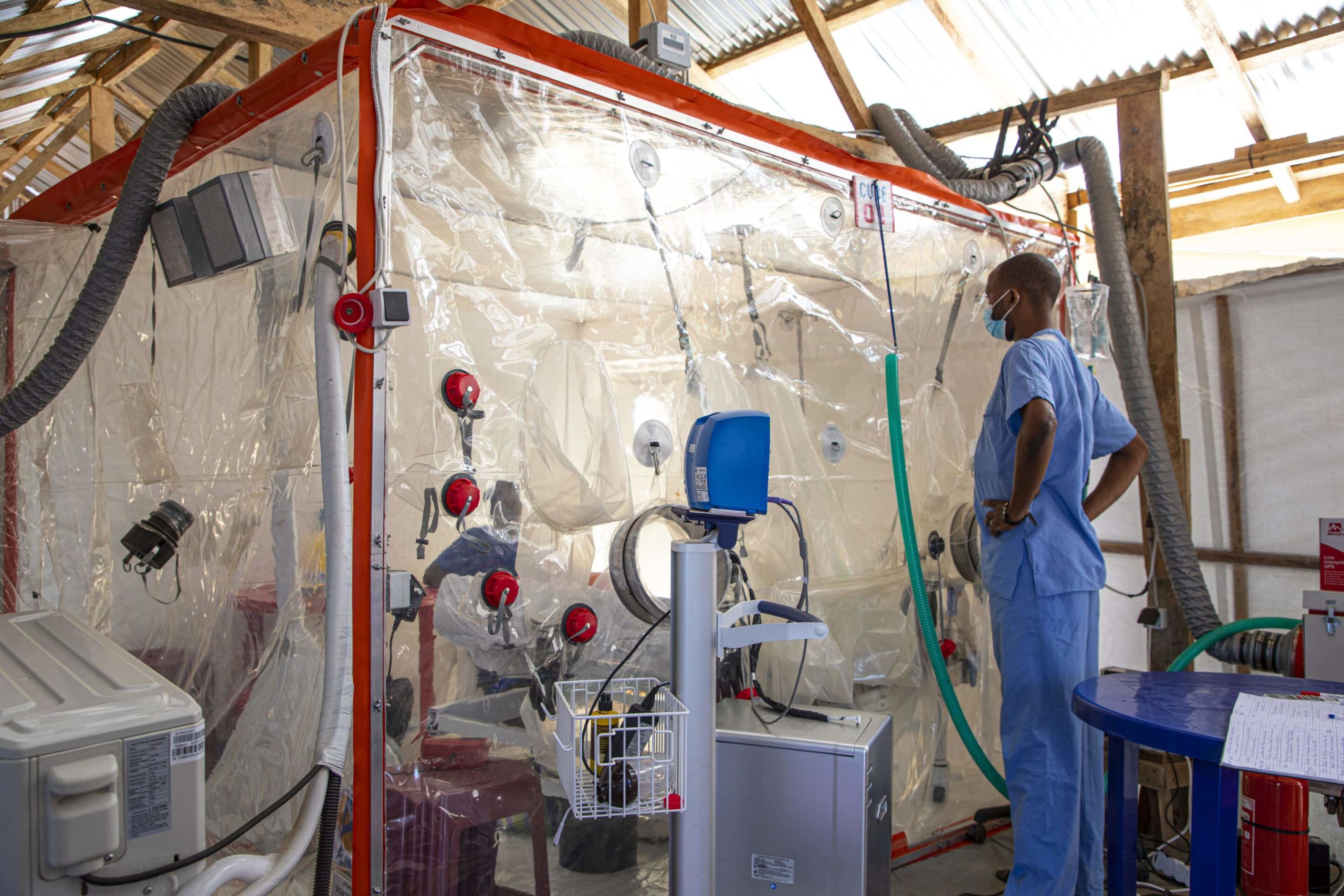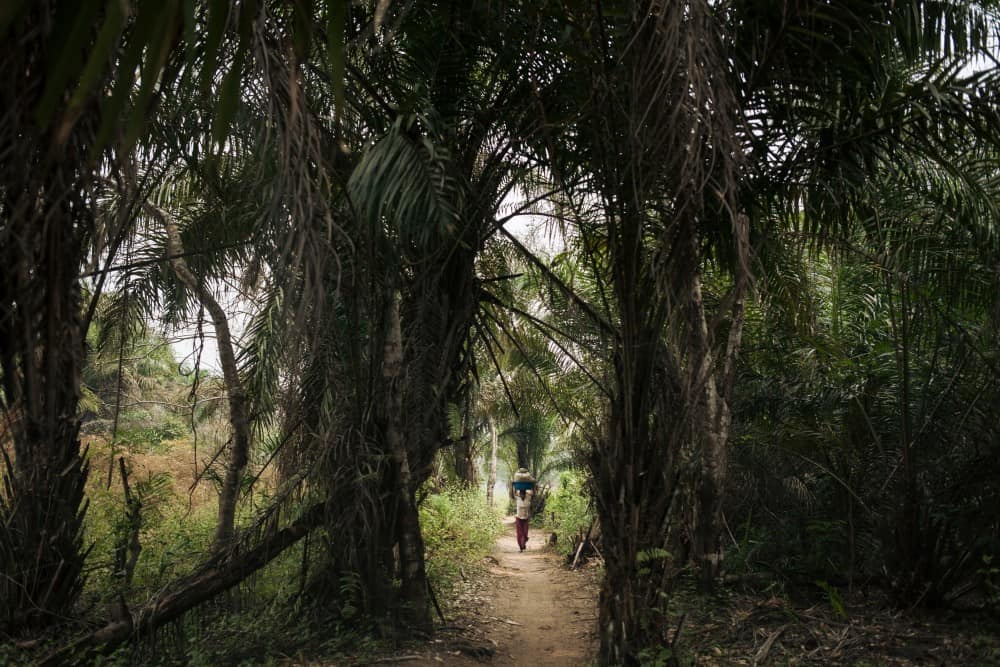A mobile clinic travels throughout the department of Tchintabaraden in the Tahoua region to provide free consultations for children under the age of five and pregnant women. Mobile healthcare is a concept that was created based on the medical needs of nomadic populations.
“Many of them are pastoralists, always moving from place to place in search of food and water for their animals, with little or no access to medical care,” said Doctor Aziz Abaradine Almoustapha, a medical supervisor for ALIMA in Niger. “We have therefore adapted to these local realities by creating mobile clinics that go to meet people and not the other way around.”
Almadinatou, 21, was able to have her son Mohamed vaccinated during one of the stops of the mobile clinic.
She says she appreciates the presence of community liaison agents in the various camps.
These agents have been trained to facilitate medical consultations by telephone with the support of qualified nurses and doctors from Tchintabaraden. When it is a simple ailment, such as diarrhea, headache or simple eye infection, the community agents follow the instructions of the medical team and dispense medication. In case of complicated illnesses, the patient is referred by ambulance to the nearest hospital.
“Before, we had to take the children to the town of Tchintabaraden so that they could be treated, but now we do not need to anymore,” Almadinatou said. “We just go to the community agent and we get what we need.”
In addition to mobile clinic activities, medical teams also provide surgical services.
“Before we arrived, the hospital did not have the capacity to deal with surgical emergencies because there were no qualified surgeons in the area and the operating theater was not functional,” said Dr. Aziz Abaradine Almoustapha.
Since December 2016, ALIMA and BEFEN have performed more than 600 surgeries at the Tchintabaraden and Ingall district hospitals. The most frequent pathologies are hernias, benign tumors (cysts and lipomas) and cataracts. Ophthalmic surgery helped prevent more than 300 people from going blind.
Abdoulaye Chaibou, 69, is one of the patients who had eye surgery. He suffered from a cataract in his right eye.
“I can see with my right eye for the first time in several months,” he said. “This is the first time, in almost 70 years of my existence, that we have benefited from this type of treatment.”
See more: [Photo-story] Caring for nomads
The Alliance for International Medical Action (ALIMA) is a medical humanitarian organization that works hand-in-hand with a network of local health organizations to provide quality medical care to the most vulnerable people during emergency situations and recurrent crises. ALIMA and its partners are also conducting cutting-edge research to improve humanitarian medicine.
Based in Dakar, Senegal, ALIMA has treated over 2 million patients in 12 countries since its creation in 2009 and launched 10 research projects focused on malnutrition, malaria and Ebola.
In Niger, ALIMA and its Nigerian NGO partner, BEFEN, are working with the health authorities of Mirriah (Zinder region) and Dakoro (Maradi region) to reduce mortality among children under five. In 2016, medical teams treated more than 44,000 children with severe acute malnutrition and 96,000 patients with malaria. Nearly 150,000 mothers were trained to detect malnutrition in their children using the MUAC model.
In August 2016, during an outbreak of Rift Valley Fever, ALIMA opened a 40-bed treatment center and helped local health authorities treat nearly 350 patients.
Photos and videos: Mamadou Diop/ALIMA



